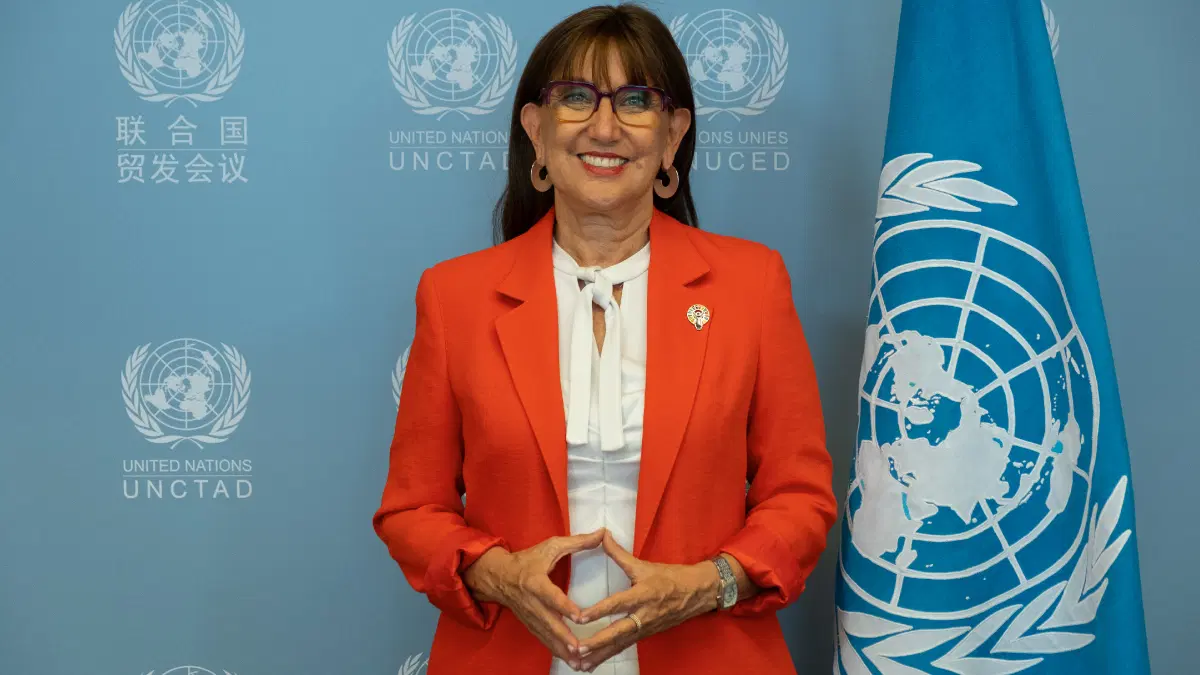A new initiative known as the Borrowers’ Forum has been launched to help heavily indebted countries coordinate their efforts and strengthen their collective influence within the global financial system.
The forum was officially introduced on Wednesday during the UN’s major sustainable development conference in Sevilla, Spain, at a time when debt-related challenges are mounting for many developing nations.
Backed by the United Nations, the forum is set to become a central feature of the Sevilla Commitment outlined in the conference’s final agreement.
Rebeca Grynspan, who heads the UN Conference on Trade and Development (UNCTAD), noted that developing countries often find themselves negotiating with creditors in isolation, even though creditors tend to act together as a unified front. She stressed that for these nations, having a voice goes beyond simply being heard — it’s about having real leverage to influence decisions.
According to her, voice is not just the ability to speak, it’s the power to shape outcomes.
“Today, 3.4 billion people live in countries that pay more in debt service than they do on health or education.”
She said that the forum, one of 11 recommendations by the UN Secretary-General’s Expert Group on Debt, would allow countries to share experiences and receive technical and legal advice.
“It will also allow countries to promote responsible lending and borrowing standards, and build collective negotiating strength.
“Its inauguration will addresses long-standing calls from the Global South for more inclusive decision-making in a debt system dominated by creditor interests,” added.
Read also: Developing Countries See Lowest FDI Since 2005 – World Bank
Finance ministers from the Global South and foreign ministers hailed the Borrowers’ Forum as a milestone in efforts to reform the international debt architecture.
UN Special Envoy on financing the 2030 Agenda, Mahmoud Mohieldin, said the forum was a direct response to a system that has kept debtor countries isolated for too long.
“This is about voice, about fairness, and about preventing the next debt crisis before it begins,” he said.
The commitment, known in Spanish as the Compromiso de Sevilla, was adopted by consensus at the conference and includes a cluster of commitments on sovereign debt reform, alongside support for borrower-led initiatives.
“It calls for enhanced debt transparency and improved coordination among creditors, as well as the exploration of a multilateral legal framework for debt restructuring.
It endorsed country-led debt sustainability strategies and debt payment suspension clauses for climate-vulnerable nations.
It also endorsed greater support for debt-for-nature and debt-for-climate swaps, although with stronger safeguards and evidence of impact.
Civil society organisations have strongly criticised the Sevilla conference’s outcome, arguing that it failed to deliver the transformative reforms urgently needed to address the debt burdens weighing down many developing countries.
Jason Braganza, Executive Director of the African Forum and Network on Debt and Development, said the agreement adopted on the conference’s first day, known as the Sevilla Agreement, fell far short of expectations.
He remarked that the document lacked ambition from the outset and was further weakened during negotiations. Braganza noted that nearly half of African nations are trapped in debt crises, forced to prioritise repaying creditors over investing in essential services such as healthcare, education, and access to clean water.
Despite his disappointment with the overall outcome, he commended the African Group and the Alliance of Small Island States for their determined push for the creation of a UN Framework Convention on sovereign debt.
He also acknowledged a small but notable achievement in the form of a new intergovernmental process, which he said could pave the way for meaningful reforms in the future.

